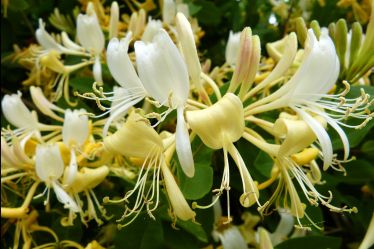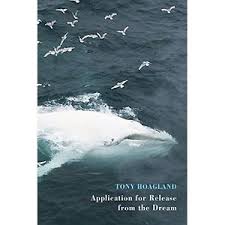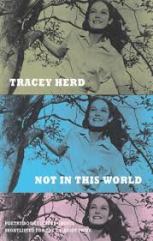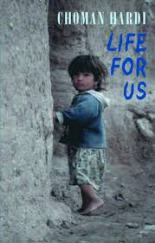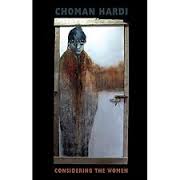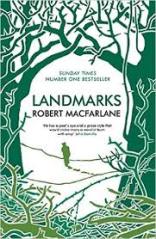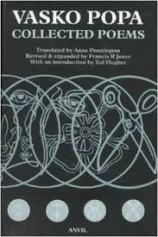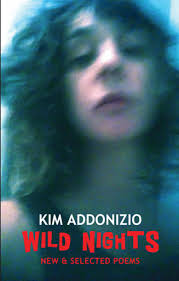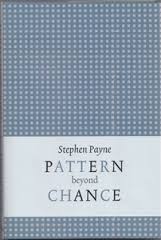The sad news of American poet Tony Hoagland’s death yesterday (23.10.2018), prompts me to post this brief review of one of his more recent books, Application for Release from the Dream (Bloodaxe Books, 2015). My review was originally written to appear in Poetry London a couple of years ago. Hoagland’s work punctures personal, poetical and political pretensions and I would highly recommend it to anybody who has yet to discover its great pleasures and profundities. His most recent collection – likely to be his last – will appear in the UK next year and be called Priest Turned Therapist Treats Fear of God (Bloodaxe Books, 2019).
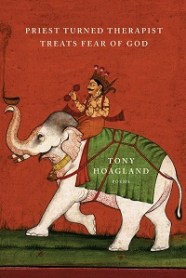
The metaphorical dream Tony Hoagland’s book titles is applying for release from is the alchemical one: the search for gold from lead. Though Hoagland’s world is definitely leaden, quotidian, often spoiled, there are compensatory moments when the disappointed prospective alchemist recalls “the lute hidden in his closet”. And though Hoagland is always keen to ask big questions (this collection opens with “What is a human being? What does it mean?” (‘The Edge of the Frame’)), his poems travel through thickets of irony because language interferes and shit happens and our harking after absurd, abstract, definitive answers is wholly mistaken.
Many of these poems are laugh-out-loud funny and there are occasions when Hoagland reminds me of the Ted Hughes of Crow with its gallows humour spliced with admiration for a sometimes thuggish survival against the odds: “Underneath the smile is bitterness, and underneath the bitterness is grief, / and underneath the grief the desire to survive” (‘Airport’).
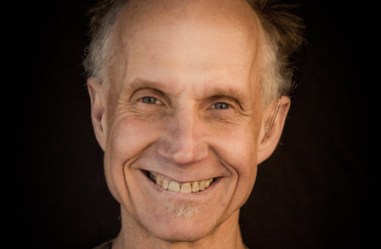
But, Antaeus-like, Hoagland always keeps his feet firmly on the ground. His language is accordingly direct, chatty, engaging, man to man (not afraid to be masculine), eschewing the hyper-economy of certain poetries. His verse forms are very free. He’s good company (and will remind you of Billy Collins); he’s drawn to the common man (and will remind you of Philip Levine). In ‘The Hero’s Journey’ the sight of a marble floor in a hotel lobby impresses on him that “someone had waxed and polished it all”. This, he characteristically tells us, “tempered my enthusiasm for The Collected Letters of Henry James, Volume II”.
The fact is, Hoagland’s heroes are cleaners, bakers, prisoners and the nurse “wiping off the soft heroic buttocks of Odysseus”. His ‘Little Champion’ is a butterfly that lives on the urine of a particular animal, its lifetime spent in slavish pursuit of it. Likewise, “Human beings are tough” declares a poem set in a hospital, “with their obesity, their chemo and their scars” (‘December, with Antlers’).
 Nevertheless, some uncertain light can be cast on the human condition by ‘The Neglected Art of Description’. A man descending into a man-hole can remind us of “the world // right underneath this one” though Hoagland treats this idea with three doses of ironic distancing. He’s even more confident that the pleasures of perceptual surprise can “help me on my way” (even this, an equivocal sort of progress and destination; no golden goal).
Nevertheless, some uncertain light can be cast on the human condition by ‘The Neglected Art of Description’. A man descending into a man-hole can remind us of “the world // right underneath this one” though Hoagland treats this idea with three doses of ironic distancing. He’s even more confident that the pleasures of perceptual surprise can “help me on my way” (even this, an equivocal sort of progress and destination; no golden goal).
This book’s title poem is as definitive and epigrammatic as it gets: “If you aren’t learning, you have not been paying attention. / If you have nothing to say, it is because your heart is closed”. But the disturbing truth, according to ‘Crazy Motherfucker Weather’, is that our precious selves are no more than “a burning coal // one carries around in one’s mouth for sixty years, / for delivery / to whom, exactly; to where?” Another poem suggests there is a place balanced “between irony and hope” where we might live (‘Western’).
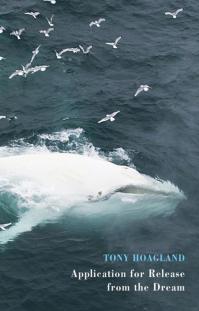
The humour of Hoagland’s poems punctures both personal and political pretension, targets the poet himself as much as others, makes for very enjoyable poems and ensures those few moments of pleasure or beauty that do emerge are all the more convincing. In ‘Because It Is Houston’, for example, there is no one “better qualified around”, so the narrator derives surprise and pleasure from the “little ivory trumpets” knocked from a honeysuckle bush by a brief shower of rain.
